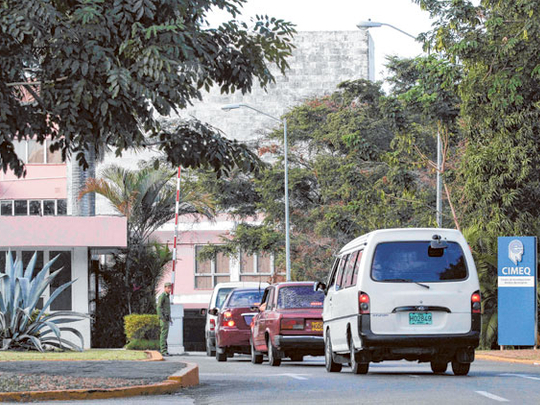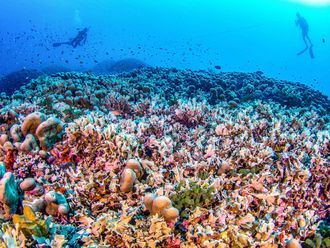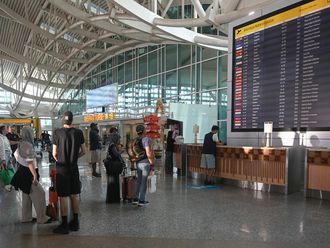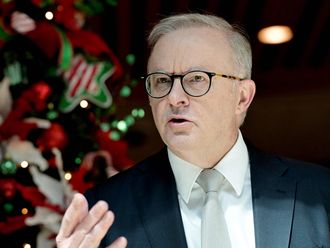
HAVANA: It’s a blocky, blush-coloured building surrounded by a lush canopy of trees near the rumoured home of Cuban revolutionary icon Fidel Castro. Somewhere inside, as best as can be determined, Venezuelan President Hugo Chavez is fighting for his life.
People in Venezuela and other parts of the world await word on the fate of a man who once called George W. Bush “the devil” in a speech to the UN General Assembly, yet there are no journalists camped out on the sidewalk. Nobody gets past a police guard without proof of official business inside. Signs on surrounding streets warn that taking photographs is forbidden.
CIMEQ hospital’s well-earned reputation for guaranteeing the privacy of its elite clientele makes it the perfect place for the Venezuelan leader, who is bent on maintaining a large degree of secrecy about his battle against a cancer somewhere in the pelvic region. Venezuelan government officials have released few details on the cancer since it was first discovered in June 2011, and they’ve been no more forthcoming during his latest stay for a fourth surgery on December 11.
“What Chavez gets there [at CIMEQ] is a lot of privacy,” said Sergio Diaz-Briquets, a Virginia-based analyst and the author of The Health Revolution in Cuba.
“They have been pretty good at protecting the private affairs of the leaders of the Cuban revolution, and now we see they’re doing the same with Chavez.”
CIMEQ, a Spanish-language acronym for Centre for Medical and Surgical Research, is operated jointly by Cuban civilian and military authorities and is considered the crown jewel of the island’s health care system. Opened in 1982 in western Havana, it was the first to use CAT scan technology in Cuba, and is reputedly at the vanguard of marrow, liver and kidney transplants.
Communist-run Cuba is legendary for being able to keep a secret, and CIMEQ sits in an upscale Havana neighbourhood where security is especially tight. The area crawls with police and guards even on a normal day, and high walls shield pre-revolution mansions that today house embassies, diplomats, visiting dignitaries and top officials. Just up the road is a convention centre where Colombia and its largest rebel group are holding supersensitive peace talks behind closed doors.
CIMEQ serves ordinary Cubans for free under the island’s public health system, but it’s renowned as the go-to place for A-listers, from famed 91-year-old ballerina Alicia Alonso to the late boxing great Teofilo Stevenson. High-profile visitors such as Presidents Rafael Correa of Ecuador and Evo Morales of Bolivia have also availed themselves of CIMEQ’s services.
Those who manage to get past the front gate walk past a parking lot, under an imposing overhang and through an ample front door to find leatherette-seated waiting areas and broad, labyrinthine corridors.
Even here there’s practically no visual clue suggesting the presence of Chavez. A half-dozen CIMEQ patients said security seems normal and there’s no sign of the Cuban secret service agents in guayabera shirts who guard President Raul Castro and famous visitors.
However, recently, several cars in the parking lot bore black diplomatic license plates identifying them as belonging to the Venezuelan Embassy.
“They’ve been saying for a while that Chavez is here, ever since he fell ill,” said Barbara Ramirez, a 62-year-old Havana resident.
“But I’ve been coming here for treatment for a long time and I don’t see anything.”
Chavez is believed to be housed in an entirely separate ward that is off-limits to all but a few - his doctors, family members and the highest-level officials. It is here that Chavez’s friend and mentor, Fidel Castro, 86, was presumably treated for an intestinal ailment that nearly killed him and forced him into retirement seven years ago. As has been the case with Chavez, details of Castro’s illness were closely guarded leaving rumour and speculation to rule the day.












